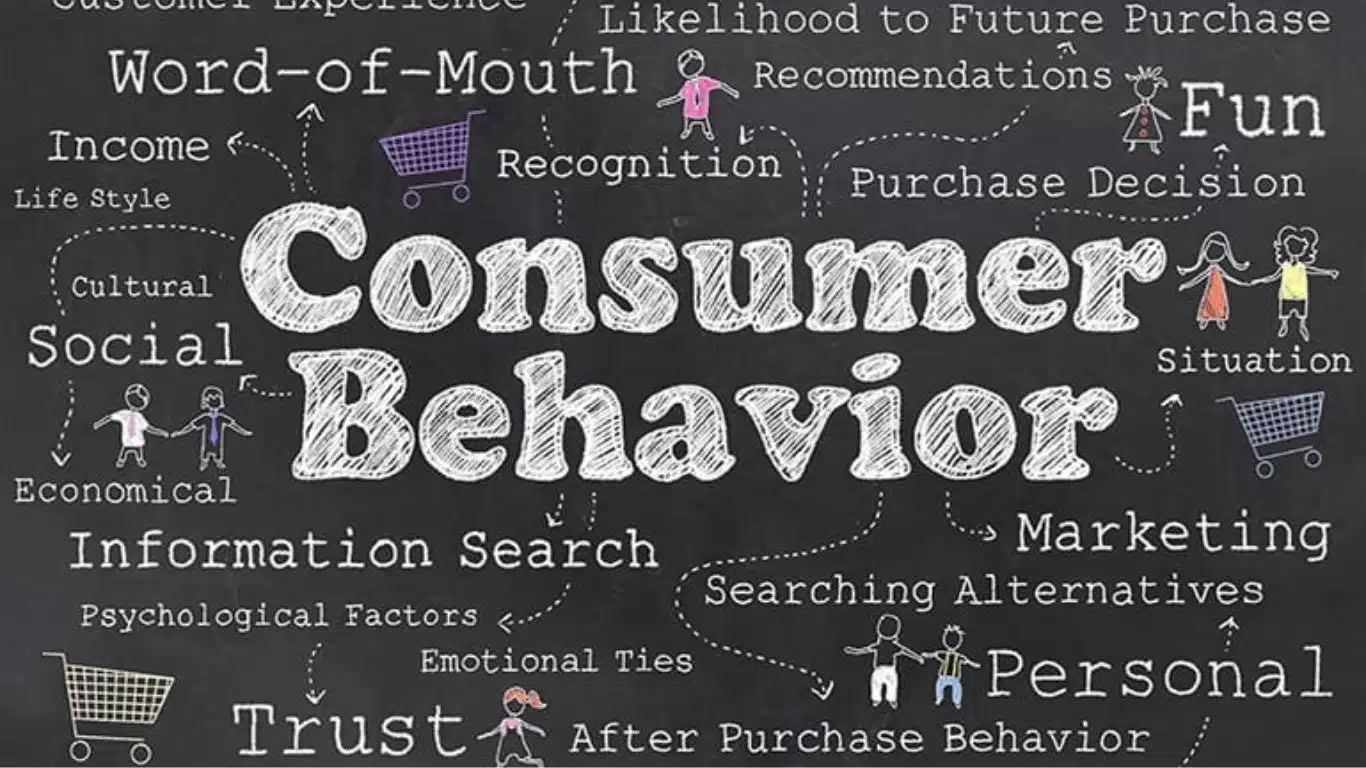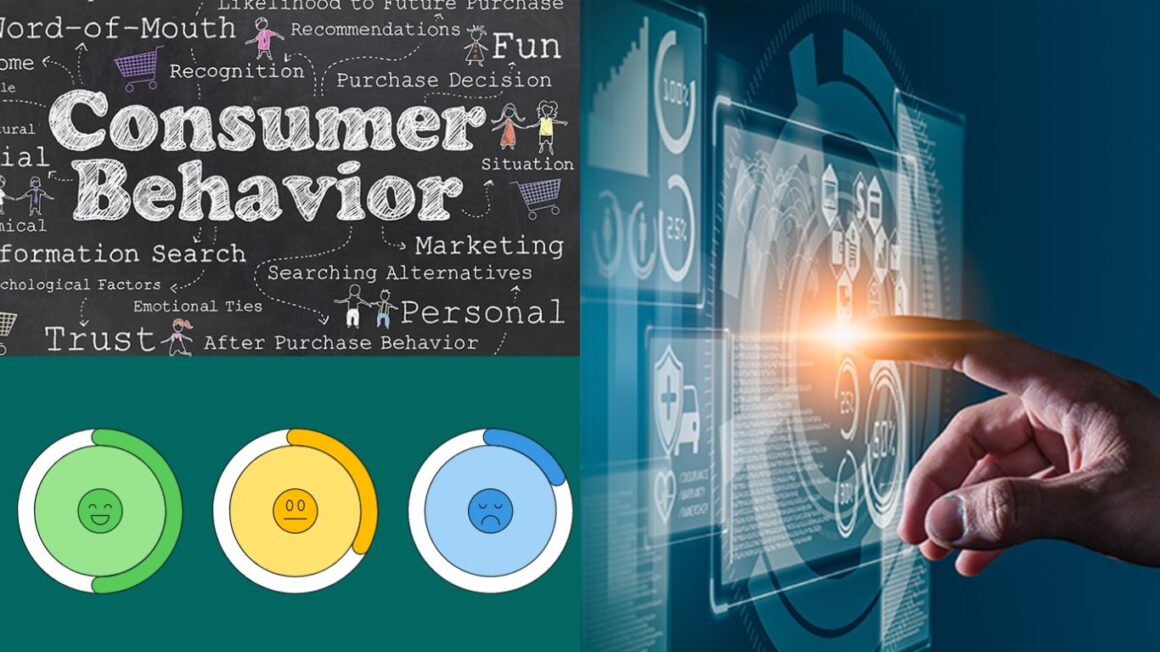- One of the most prominent ways AI is shaping consumer behavior is through personalized recommendations.
- Another crucial application of AI in shaping consumer behavior is predictive analytics.
- By leveraging historical data and AI algorithms, businesses can forecast consumer trends, preferences, and purchasing be…
- While AI offers tremendous potential in shaping consumer behavior, it also raises ethical considerations and privacy con…
- AI-driven dynamic pricing and demand forecasting algorithms have the potential to shape consumer behavior by optimizing …
- The potential of AI to shape consumer behavior is vast and transformative.
Unleashing the Potential of AI to Shape Consumer Behavior: In the ever-evolving digital landscape, Artificial Intelligence (AI) has emerged as a powerful force in shaping consumer behavior. From personalized recommendations to AI-driven chatbots, businesses are leveraging the potential of AI to understand, influence, and shape the choices consumers make. This article explores how AI is transforming the way businesses engage with customers on a personalized level, using advanced algorithms and technologies. By analyzing vast amounts of data, AI offers personalized recommendations, enhances customer service, and even predicts consumer trends.
Unleashing the Potential of AI to Shape Consumer Behavior
Understanding Consumer Behavior

Before delving into the role of AI, it is essential to comprehend consumer behavior. Consumer behavior refers to the actions and decision-making processes individuals undertake when purchasing goods or services. It encompasses factors such as motivations, preferences, and attitudes that drive consumer choices. Traditionally, businesses relied on market research, surveys, and focus groups to gain insights into consumer behavior. However, with the advent of AI, a new realm of possibilities has opened up.
Personalized Recommendations
One of the most prominent ways AI is shaping consumer behavior is through personalized recommendations. AI algorithms analyze vast amounts of data, including purchase history, browsing patterns, and demographic information, to generate tailored recommendations for consumers. Platforms like Amazon, Netflix, and Spotify have mastered the art of recommendation engines, presenting users with products, movies, or songs that align with their tastes and preferences. These personalized recommendations not only enhance the user experience but also influence purchasing decisions, leading to increased sales and customer satisfaction.
Chatbots and Virtual Assistants
AI-powered chatbots and virtual assistants are revolutionizing customer service and engagement. These intelligent systems use natural language processing (NLP) and machine learning algorithms to understand and respond to user queries in real-time. By providing quick and accurate responses, chatbots and virtual assistants enhance the customer experience, saving time and effort. Moreover, they can actively shape consumer behavior by offering product suggestions, upselling or cross-selling items, and even providing personalized discounts or promotions. As these AI systems become more advanced, they are likely to become indispensable tools for businesses looking to influence consumer decision-making.
Sentiment Analysis and Social Listening

AI has also enabled businesses to monitor and analyze consumer sentiment in real-time through sentiment analysis and social listening. Sentiment analysis uses AI algorithms to analyze social media posts, customer reviews, and online discussions to gauge consumer opinions and emotions towards specific products or brands. By understanding the sentiment behind consumer conversations, businesses can adapt their marketing strategies, identify areas of improvement, and tailor their offerings to meet consumer demands. This data-driven approach allows companies to proactively shape consumer behavior by addressing concerns, resolving issues, and capitalizing on positive feedback.
Predictive Analytics
Another crucial application of AI in shaping consumer behavior is predictive analytics. By leveraging historical data and AI algorithms, businesses can forecast consumer trends, preferences, and purchasing behaviors. Predictive analytics allows companies to anticipate consumer needs, optimize inventory management, and develop targeted marketing campaigns. By accurately predicting consumer behavior, businesses can deliver personalized offers, create timely promotions, and stay one step ahead of their competitors. This proactive approach not only enhances customer satisfaction but also increases the chances of conversion and loyalty.
Ethical Considerations and Privacy Concerns
While AI offers tremendous potential in shaping consumer behavior, it also raises ethical considerations and privacy concerns. AI algorithms heavily rely on personal data, and there is a fine line between personalized recommendations and invasive surveillance. Companies must strike a balance between leveraging AI to understand and influence consumer behavior while respecting privacy rights and ensuring transparency. Moreover, the potential for algorithmic bias should be addressed, as AI systems may inadvertently reinforce existing inequalities or perpetuate discriminatory practices. Responsible AI deployment, stringent data protection measures, and ethical guidelines are essential to mitigate these concerns and build trust with consumers.
The Power of Behavioral Insights

AI’s ability to analyze vast amounts of data and derive behavioral insights is a game-changer for businesses. By understanding consumer behavior at a deeper level, companies can create targeted marketing strategies, develop more effective advertising campaigns, and optimize product design. AI-powered analytics can uncover patterns and trends that were previously hidden, providing valuable insights into consumer preferences, purchasing habits, and decision-making processes. Armed with this knowledge, businesses can make data-driven decisions that have a direct impact on consumer behavior.
Hyper-Personalization and Customization
AI enables hyper-personalization and customization, allowing businesses to cater to individual consumer preferences on a massive scale. By leveraging AI algorithms, companies can create highly personalized experiences that resonate with consumers on a personal level. From personalized product recommendations to customized marketing messages, AI empowers businesses to deliver tailored experiences that capture the attention and loyalty of consumers. This level of personalization not only enhances the consumer journey but also influences purchasing decisions and fosters brand loyalty.
Augmented Reality and Virtual Reality
The integration of AI with augmented reality (AR) and virtual reality (VR) technologies opens up exciting possibilities for shaping consumer behavior. AR and VR experiences powered by AI can provide immersive and interactive encounters, allowing consumers to visualize products in real-world settings or virtually try out different options. This technology revolutionizes the way consumers engage with products, making the shopping experience more engaging and persuasive. By providing a virtual “try before you buy” experience, businesses can instill confidence in consumers and drive conversions.
Dynamic Pricing and Demand Forecasting

AI-driven dynamic pricing and demand forecasting algorithms have the potential to shape consumer behavior by optimizing pricing strategies. These algorithms analyze real-time market conditions, consumer demand patterns, and competitor pricing to determine the most effective pricing strategy for maximum revenue and profitability. By dynamically adjusting prices based on factors like demand, availability, and consumer behavior, businesses can incentivize purchases, create a sense of urgency, and influence buying decisions. However, transparency and fairness in pricing practices are crucial to maintaining consumer trust and avoiding backlash.
Enhancing Product Development
AI plays a pivotal role in shaping consumer behavior right from the product development stage. By analyzing consumer data, market trends, and feedback, AI can provide valuable insights to guide product development processes. This ensures that businesses create products that align with consumer preferences, needs, and expectations. AI-powered product development also enables continuous iteration and improvement, allowing companies to stay ahead of the competition and deliver products that resonate with consumers. By actively involving consumers in the development process, businesses can create a sense of ownership and loyalty among their customer base.
Conclusion
The potential of AI to shape consumer behavior is vast and transformative. From personalized recommendations and chatbots to sentiment analysis and predictive analytics, AI-driven technologies are revolutionizing the way businesses interact with consumers. However, ethical considerations, privacy concerns, and responsible AI deployment must be at the forefront of these advancements. As AI continues to evolve, businesses need to strike a delicate balance between leveraging its power to influence consumer behavior and respecting individual privacy rights. By harnessing AI’s potential responsibly, businesses can create personalized experiences, drive consumer engagement, and ultimately shape consumer behavior in ways that benefit both companies and consumers alike.
Also Read: What if Humans are an AI Developed by Aliens?



